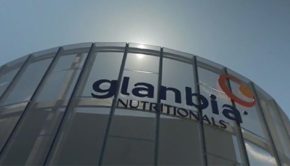Kantar: Tesco achieves highest market share growth

Compared to last Christmas, Tesco managed to increase its share by over one point, to 27.2%, for the 12 week period ending 26 December 2010.
14 February 2011
Tesco has proved the main winner in achieving market share growth, according to the latest grocery market figures from Kantar Worldpanel.
Overall, the Irish grocery market remained in growth at 2.1% for the 12 week period ending 26 December 2010; slightly ahead of the previous period (1.6%).
With inflation falling to 3.9% from a previous high of 4.2%, fewer consumers traded down in December compared to November.
Star performer Tesco managed to increase its share by over one point, to 27.2%, compared to last Christmas. SuperValu was the most improved performer over the festive season, growing ahead of the market at 3% for the first time in nine months and increasing its market share to 19.9%.
Adverse weather conditions were believed to have helped SuperValu, as many people were preferring to shop locally, said Kantar Worldpanel commercial director David Berry.
Commenting on Tesco’s success, Berry told ShelfLife: “One of the key [reasons] centres around floorspace, in that they’re one of the few retailers that have continued to open new stores during the recession…Whereas if you look at their main competitors, Dunnes in particular, they’ve cut back on store openings.”
Premium retailer Superquinn also had a less prosperous Christmas than others, recording a dip in its market share from 6.4% to 6.1%.
However Berry told ShelfLife he believed Superquinn should continue to focus on highlighting a premium offering. “I think concentrating on what they’re good at could have some benefit for them,” he said.
There were also contrasting performances for the discounters this Christmas. Aldi continued to post excellent growth at 22.9%, increasing its sales by €15 million. Conversely Lidl’s growth slowed from 9.4% in the last period to 6.7% in the run up to Christmas.
The move away from festive premiumisation, reflected in Superquinn’s performance, was also echoed by lower sales of branded goods. In fact, Berry said December saw “own label ranges growing in value by 5% and branded lines remaining flat.”



 Print
Print






Fans 0
Followers